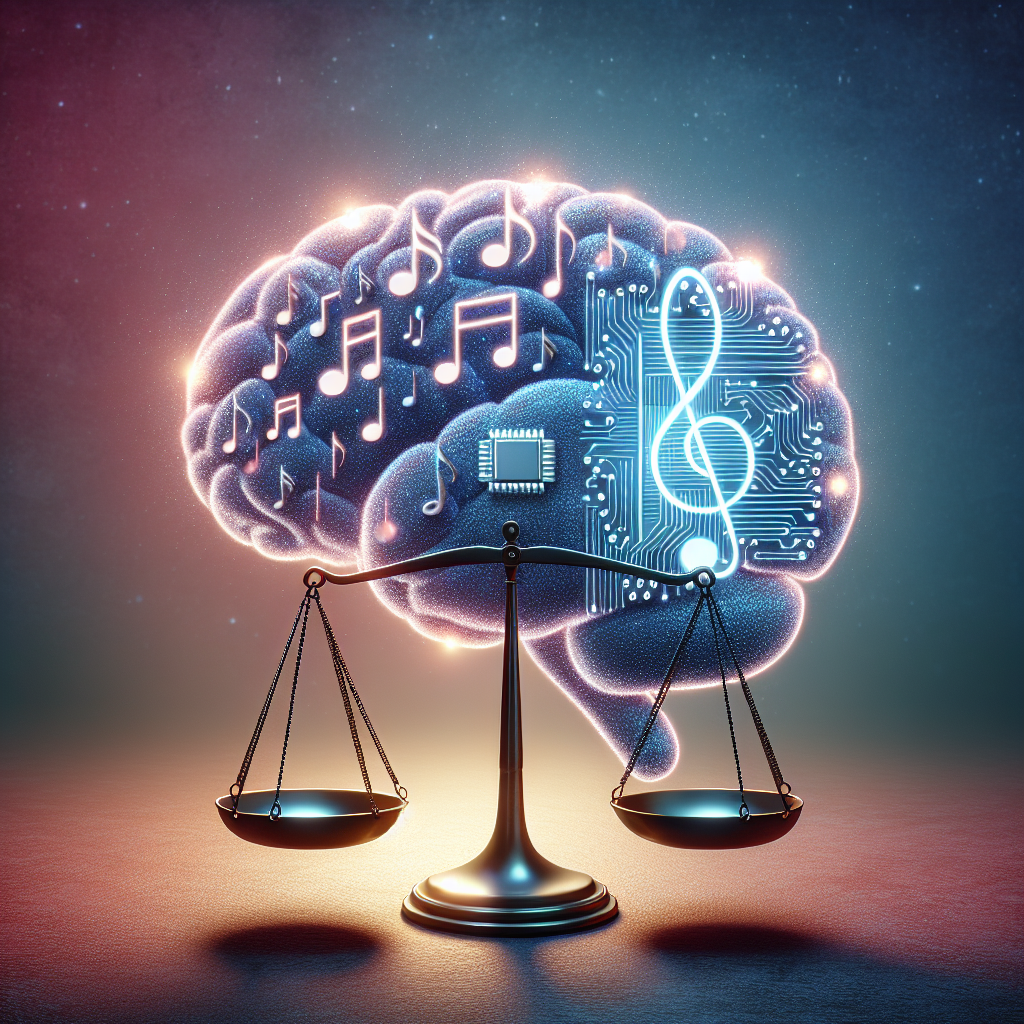Introduction
Artificial Intelligence (AI) has made significant advancements in recent years, leading to the creation of AI-generated music. This technology has the potential to revolutionize the music industry by automating the composition process and creating unique and innovative pieces of music. However, the rise of AI-generated music raises ethical implications that must be carefully considered and addressed.
Ethical Implications of AI-Generated Music
1. Creativity and Originality
One of the primary ethical concerns surrounding AI-generated music is the issue of creativity and originality. Can music created by AI truly be considered original and creative? Some argue that AI lacks the emotional depth and human experience necessary to create truly original music. Others believe that AI can produce music that is just as creative and innovative as that created by humans.
The question of whether AI-generated music can be considered original is complex and nuanced. While AI can analyze vast amounts of data and generate music that is technically proficient, it may lack the emotional depth and personal touch that human composers bring to their work. This raises questions about the authenticity and artistic value of AI-generated music.
2. Ownership and Copyright
Another ethical concern surrounding AI-generated music is the issue of ownership and copyright. Who owns the rights to music created by AI? If a piece of music is generated by AI, does the AI itself hold the copyright, or does it belong to the individual or organization that created the AI? These questions become even more complicated when considering collaborations between humans and AI in the creation of music.
The current legal framework surrounding copyright law is ill-equipped to address the complex issues raised by AI-generated music. As AI continues to play a larger role in the creation of music, it will be crucial to establish clear guidelines and regulations to protect the rights of creators and ensure fair compensation for their work.
3. Bias and Discrimination
AI algorithms are not immune to bias and discrimination, as they are trained on data that may reflect societal biases and prejudices. This raises concerns about the potential for AI-generated music to perpetuate harmful stereotypes or reinforce existing inequalities. For example, an AI algorithm trained on a dataset that is predominantly composed of music by male composers may be more likely to produce music that aligns with traditional gender norms.
It is essential for developers and creators of AI-generated music to be aware of the biases present in their datasets and algorithms and take steps to mitigate them. This may involve diversifying the training data, incorporating ethical considerations into the design process, and conducting thorough testing and validation to ensure that the music produced by AI is free from bias and discrimination.
4. Impact on the Music Industry
The rise of AI-generated music has the potential to disrupt the traditional music industry by changing the way music is created, consumed, and distributed. While AI can streamline the composition process and provide new opportunities for collaboration and creativity, it may also lead to job displacement for musicians and composers.
As AI technology continues to advance, it will be essential for the music industry to adapt and evolve to remain competitive. This may involve rethinking traditional business models, exploring new revenue streams, and finding ways to incorporate AI into the creative process in a way that benefits both artists and audiences.
5. Transparency and Accountability
Transparency and accountability are crucial considerations when it comes to AI-generated music. Users should have a clear understanding of how AI algorithms are being used to create music, including the sources of data, the design of the algorithms, and the decision-making processes involved. Additionally, there should be mechanisms in place to hold creators and developers of AI-generated music accountable for any ethical or legal issues that may arise.
FAQs
Q: Can AI-generated music be considered original and creative?
A: The question of whether AI-generated music can be considered original and creative is a complex and nuanced one. While AI can produce music that is technically proficient, it may lack the emotional depth and personal touch that human composers bring to their work. Whether or not AI-generated music is truly original is ultimately a matter of perspective and interpretation.
Q: Who owns the rights to music created by AI?
A: The issue of ownership and copyright of AI-generated music is a complex one that is not easily resolved. In some cases, the AI itself may hold the copyright to the music it creates, while in others, the rights may belong to the individual or organization that created the AI. As AI technology continues to evolve, it will be crucial to establish clear guidelines and regulations to protect the rights of creators and ensure fair compensation for their work.
Q: How can bias and discrimination in AI-generated music be mitigated?
A: Bias and discrimination in AI-generated music can be mitigated by diversifying the training data, incorporating ethical considerations into the design process, and conducting thorough testing and validation to ensure that the music produced by AI is free from bias and discrimination. It is essential for developers and creators of AI-generated music to be aware of the biases present in their datasets and algorithms and take steps to address them.
Conclusion
The rise of AI-generated music has the potential to revolutionize the music industry by automating the composition process and creating unique and innovative pieces of music. However, the ethical implications of AI-generated music must be carefully considered and addressed to ensure that this technology is used responsibly and ethically. By addressing issues such as creativity and originality, ownership and copyright, bias and discrimination, and transparency and accountability, we can harness the power of AI to create music that is both innovative and ethical.

